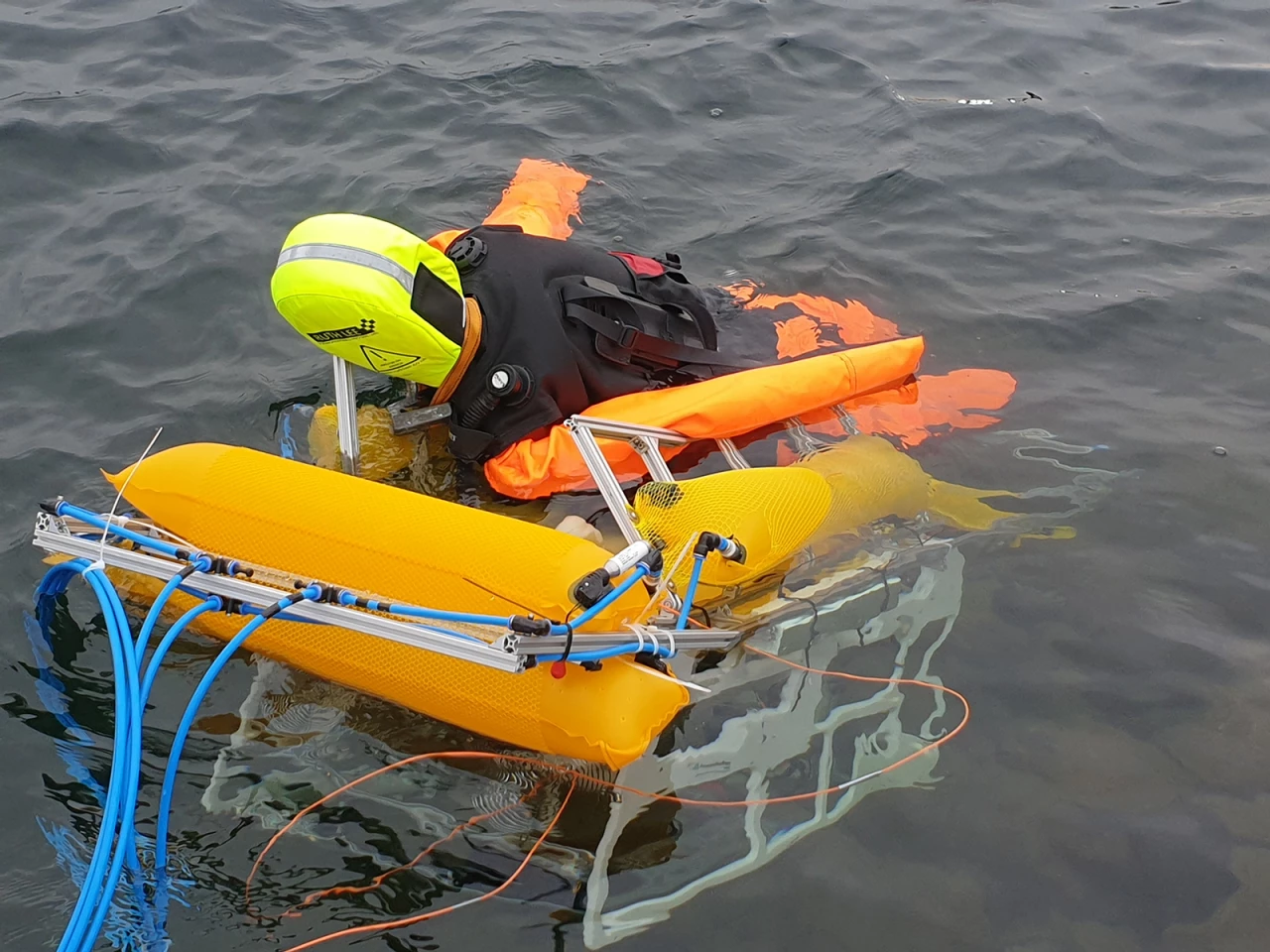Even though lifeguards are essential to maintaining safety at swimming pools, they can't always see everything that's happening, nor can all pool operators afford to pay their salaries. That's where a new swimmer-saving underwater robot is designed to come in.
The current prototype is being developed by a team of engineers from Germany's Fraunhofer Institute for Optronics, System Technologies and Image Exploitation, who previously brought us the DEDAVE autonomous underwater vehicle. They're working with colleagues from Wasserrettungsdienst Halle e.V., which is the water rescue service for the German city of Halle.
Plans call for the robot to spend most of its time sitting at an underwater docking station, on the bottom of the pool. As it does so, ceiling-mounted cameras will monitor the movement patterns and locations of the swimmers. When an artificial intelligence-based computer system detects that one of those people is showing signs of drowning, it will send their location to the robot.
The bot will respond by travelling to those coordinates, utilizing onboard cameras to visually locate the person. It will then rise up from beneath them, carrying them to the surface on its flat stretcher-like top as it does so. In cases where the swimmer is unresponsive, a clasping mechanism will hold their body in place on top of the robot, keeping it from slipping off.
The robot could also be utilized in lakes, although in that case the overhead cameras would be mounted on balloons or aerial drones. Additionally, because the water wouldn't be as clear as that of a pool, the robot would close in on swimmers utilizing acoustic sensors instead of onboard cameras.
In tests performed at Halle's Hufeisensee lake, the robot successfully located an 80-kg (176-lb) dummy submerged to a depth of 3 meters (9.8 ft). The robot subsequently secured it on top, surfaced, then transported the dummy 40 meters (131 ft) to a shore-based rescue team – all within about two minutes.

While the current version of the robot is built on the chassis of a pre-existing underwater vehicle, plans call for a future purpose-built model to be smaller, lighter and cheaper. It should also be more streamlined, as its body will be modelled after that of a manta ray.
And this isn't the first robotic lifeguard we've seen. The EMILY, U-Safe and Dolphin 1 devices travel across the surface to rescue troubled swimmers – while the Auxdron and Pars aerial drones drop floatation devices to them from the air – although all of them are remotely controlled in real time by shore-based operators.
Additionally, the Sightbit system uses cameras located along the shore to monitor swimmers, summoning human rescue teams when problems are detected.
Source: Fraunhofer





